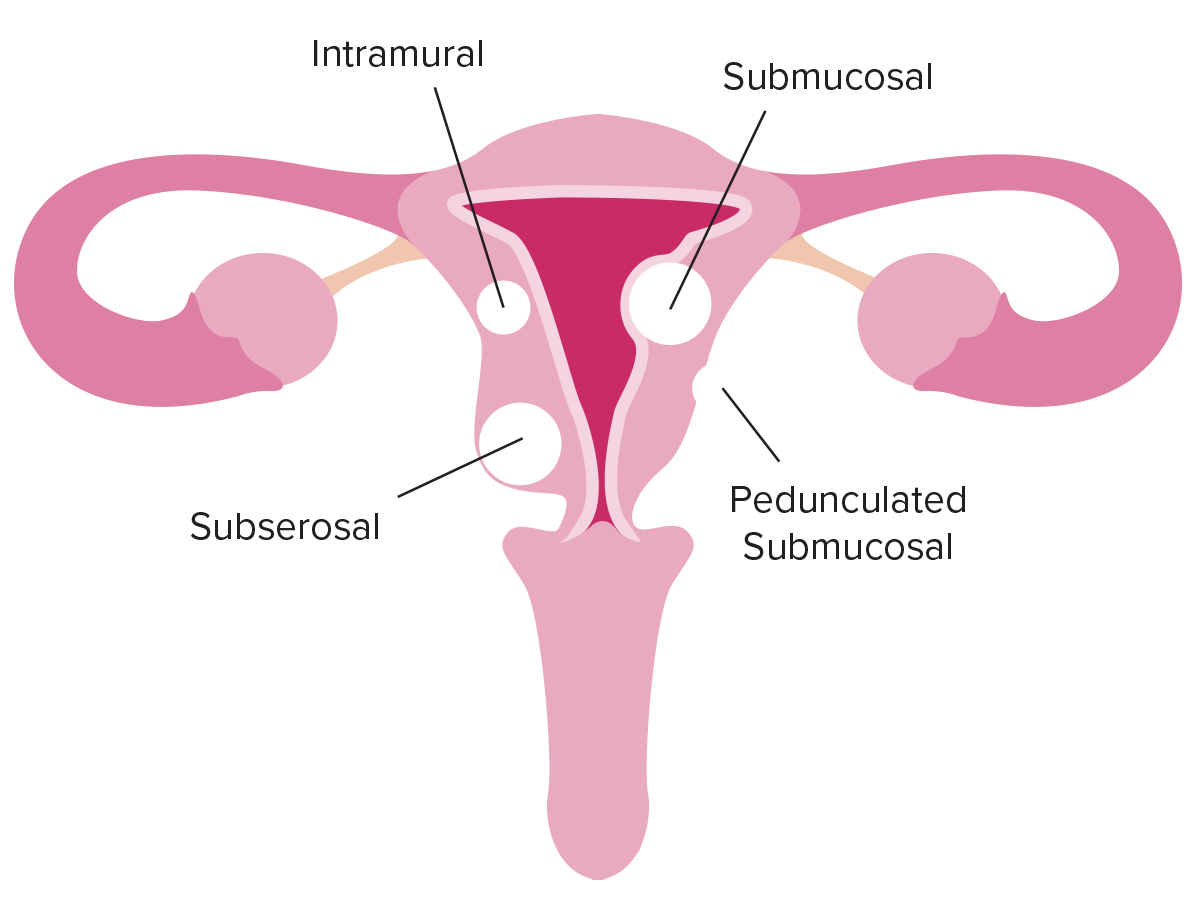Uterine Fibroid (Myoma)
Fibroids, also called as myomas, are non-cancerous tumors of the uterus that appear during your reproductive ages. Fibroids are very common. Approximately 80 percent of females will have fibroids in their lifetime, although not everyone has bothersome symptoms.
Types of Fibroids
Intramural
growing in the uterine wall. Intramural fibroids are the most common variety.
Submucosal
growing in the uterine lining (endometrium). This type tends to cause excessive menstrual bleeding and period pain
Subserosal
growing on the exterior wall of the uterus. They sometimes appear like balloon on a stick

Symptoms
Many women who have fibroids don’t have any symptoms. In those that do, symptoms can be influenced by the location, size and number of fibroids. In women who have symptoms, the most common signs and symptoms of uterine fibroids include:
- Heavy menstrual bleeding • Menstrual periods lasting more than a week
- Pelvic pressure or pain
- Frequent urination
- Difficulty emptying the bladder
- Constipation
- Backache or leg pains
- Rarely, a fibroid can cause acute pain when it outgrows its blood supply, and begins to die.
Complications
Although uterine fibroids usually aren’t dangerous, they can cause discomfort and may lead to complications such as a drop in red blood cells (anemia), which causes fatigue, from heavy blood loss. Rarely, a transfusion is needed due to blood loss.
Pregnancy and fibroids
Fibroids usually don’t interfere with getting pregnant. However, it’s possible that fibroids — especially submucosal fibroids — could cause infertility or pregnancy loss.
Fibroids may also raise the risk of certain pregnancy complications, such as placental abruption, fetal growth restriction and preterm delivery.
Treating fibroids
Most fibroids do not cause symptoms, and do not require treatment. After the menopause, they’ll often shrink without treatment. A ‘wait and see’ approach is sometimes adopted. Fibroids may require treatment in the following circumstances:
- Fibroids are growing large enough to cause pressure on other organs, such as the bladder
- Fibroids are growing rapidly
- Fibroids are causing abnormal bleeding
- Fibroids are causing problems with fertility